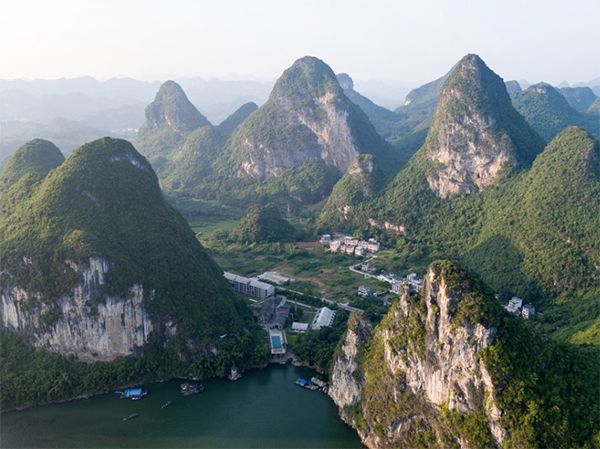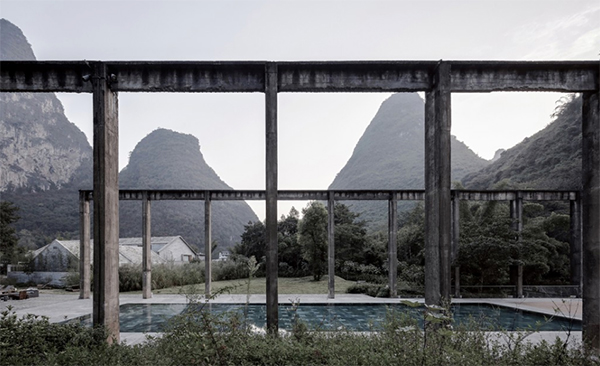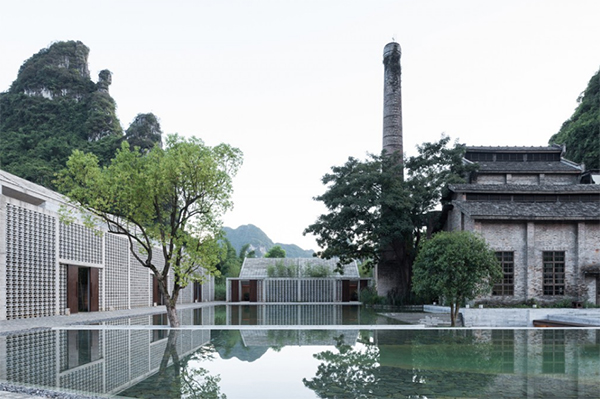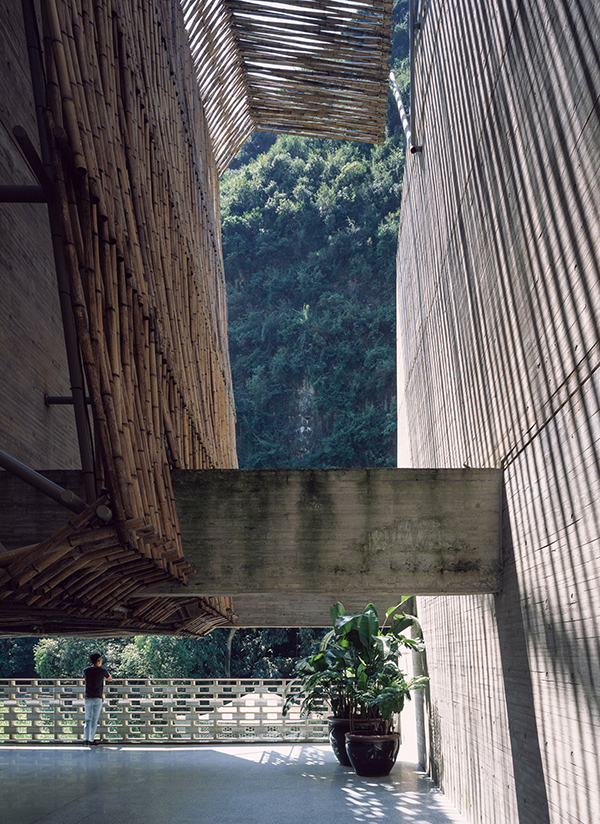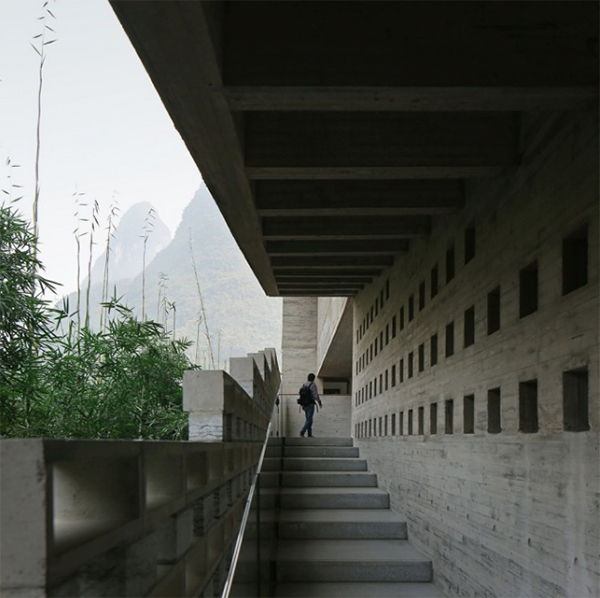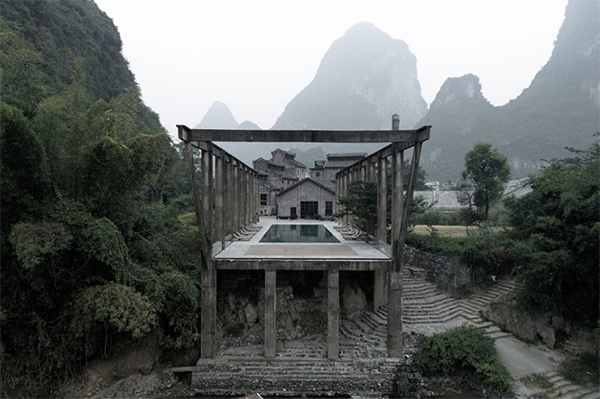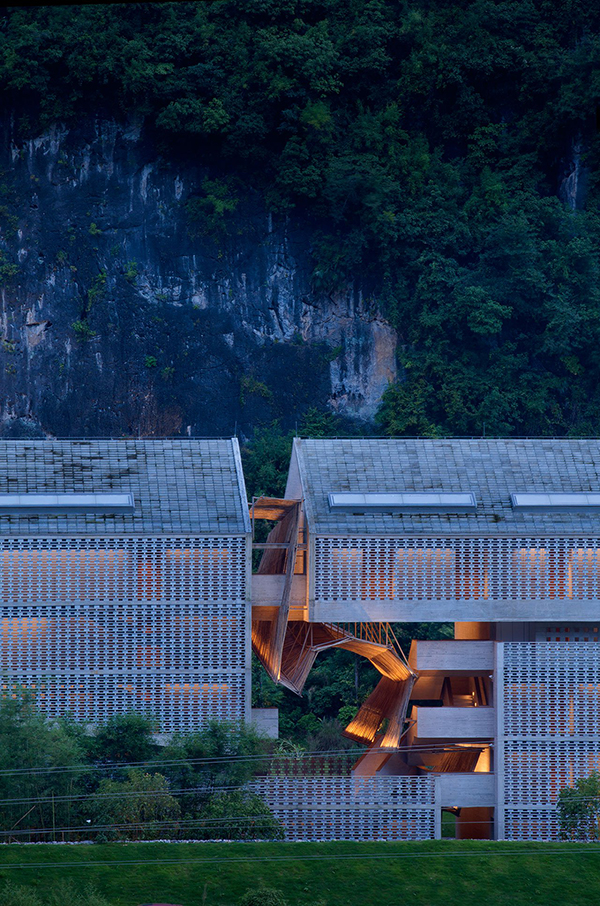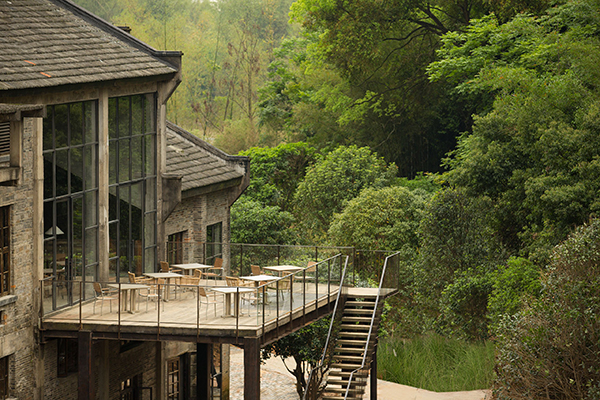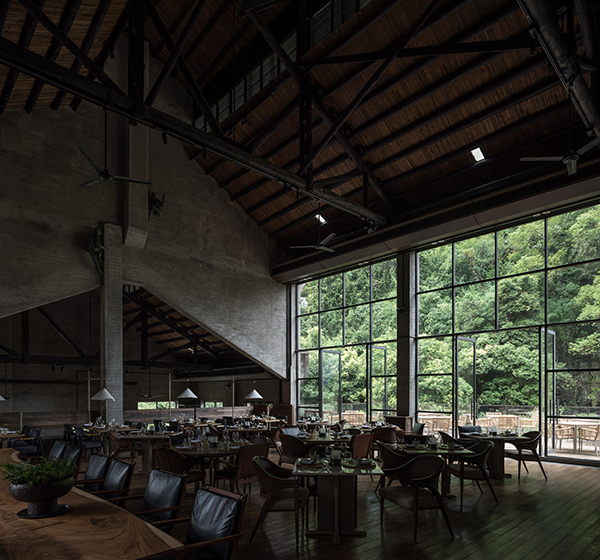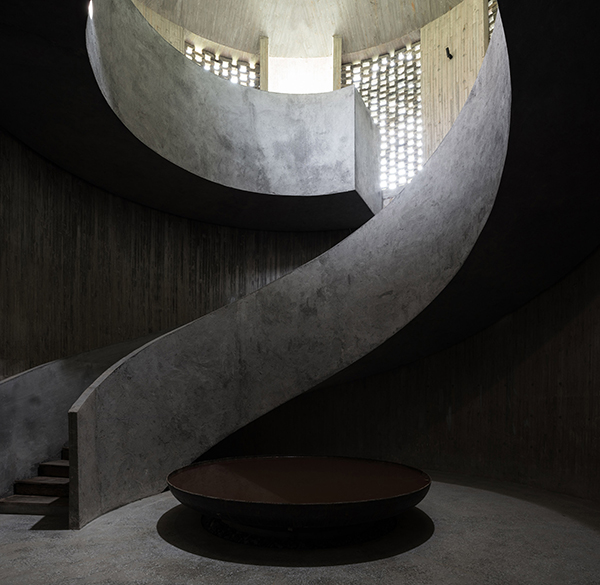Surrounded by breathtaking mountainous scenery is the Alila Yangshuo, a converted 1960s sugar mill turned luxury resort hotel. Part of the Alila hotel group, the resort is built on the banks of the Li River in China’s Yangshuo County, situated in the northeast of the Guangxi Province.
The location has been popular with both foreign and domestic tourists since the 1980s and has a population of 300,000.
The design was headed up by co-founder of Beijing-based Vector Architects, Dong Gong. The interior design was carried out by CEO of Horizontal Space Design, Ju Bin. The project is a beautiful example of adaptive reuse, where new structures compliment the original industrial buildings of the disused mill.
A harmonious blend of old and new was achieved with a simple design of gable masonry structures, combined with a similar palette to the existing buildings. Materials such as concrete and local stone have been applied in a contemporary way whilst referencing the original architecture. Red volcanic rock discovered during excavation was also mixed into the terrazzo floors and screens.
The design concept took inspiration from the caves of the surrounding landscape. The new buildings and grounds of the complex have been landscaped so that guests can walk through a network of paths and stairwells, lined with bamboo gardens, whilst taking in the incredible views of nature. The bamboo art installations are reminiscent of traditional scaffolding.
The swimming pool is located in the former loading area which would have been used for putting the sugar cane onto boats.
The aim for Vector Architects was to reuse and retain the original industrial buildings and build new structures around them for accommodation, that complimented the industrial aesthetic.
The hollow block brickwork of the resort draws inspiration from the sugar blocks that were produced in the 1920s and creates subtle lighting effect from within the walls.
The original buildings now house the the hotel’s reception, a cafe, bar, multipurpose hall, gallery and library. At the centre of the complex is a reflecting pond and sunken plaza.
The 1960s refining room now forms the Sugarhouse Restaurant and an art gallery while the hotel’s lobby is the sugar mill’s former power plant.
The hotel has 177 rooms, suites and villas. As well as indulging in Balinese massage with local black sugar, guests are offered a range of experiences such as rock climbing and traditional sugar spinning.
A feature stairwell leads to an underground spa inspired by the local karst caves. In the 1969 bar housed in the old Pressing Room, Ju Bin combined original industrial features with luxury finishes and furniture.
The sugar factory’s original concrete floor is preserved in a platform of transparent glass.
For more info and to book your stay at Alila Yangshuo click here.
●●●
Photos courtesy of Hao Chen, Shengliang Su, Vector Architects and Alila Yangshuo


